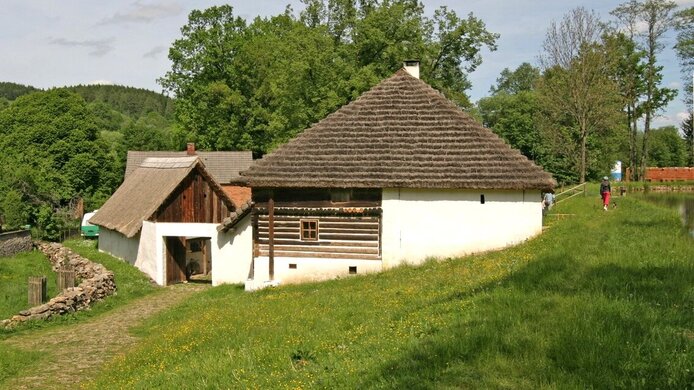Property transfer influences – or not?

"Anerbenrecht", the estate succession law whereby farms are transferred undivided to a single heir (similar to "impartible inheritance"), and "Realteilung", the equal division of the estate among all related heirs (equals "partible inheritance"), are the German legal terms used to designate the standard forms of intergenerational property transfer in the early modern period. Far-reaching impacts on marriage behaviour, population growth and social development were considered the logical consequence of these different inheritance systems. These influences, however, were never really subjected to empirical investigation. Historian Hermann Zeitlhofer from the University of Vienna has filled this gap in the research by carrying out an exemplary study for a rural region in the south Bohemian Forest. The results of the study have now been published by Böhlau Verlag.
Taking possession
Although the idea that inheritance systems have a strong impact on society was merely based on an assumption up to now, the claims based on it were far-reaching: the undivided transfer of estates is supposed to have resulted in greater migration and a strongly polarised society. Under these conditions, a small number of heirs of large estates are assumed to have contrasted with an army of destitute people left empty-handed by this inheritance system. As opposed to this, by enabling the uniform distribution of smallholdings among the masses, the equal division of estates is supposed to have facilitated more family formations and greater population growth. According to Zeitlhofer, these conclusions are based on assumptions that have not been substantiated in the specialist literature. "As shown by the parish I studied in the south Bohemian Forest, these conclusions fall short of the mark. These impacts did not arise from the transfer of property per se. The associated consequences only arose in combination with prevailing political, legal and economic conditions", he explains, summarising the results of his project, which have now been published in book form. Zeitlhofer studied, in particular, the period between 1640 and 1848, in which the principle of the indivisibility of estates predominated in the context of property transfer.
Inheritance with a contract of sale
The results that prompted Zeitlhofer to reach this conclusion were completely unexpected and do not concur with the assumptions presented in the literature. Irrespective of whether it was a matter of inheritance or a sale, rural property was mainly transferred through contracts of sale in the studied parish. It is therefore not possible to differentiate clearly in retrospect between cases involving inheritance or sale. Based on this, Zeitlhofer proved that the recipients involved in the transfer of property varied considerably over the centuries. While in the 17th century the majority of them were unrelated to the previous owners, from the 18th century onwards they were mostly members of their families. This development had serious consequences for the life paths of siblings excluded from headship succession. While they still managed to acquire houses and land in the 17th century, due to the growing trend for property transfer within families, this became increasingly impossible to achieve in the 18th century. Thus, such siblings were often forced into a lifelong existence as unpropertied tenants.
A spectrum of ownership
In addition to the land registries in the parish studied – which listed all (!) changes of ownership in the period under study – Zeitlhofer also consulted numerous taxation registers and a complete family reconstitution for his study. Based on this, he succeeded in showing that, despite the strictly observed undivided transfer of estates in the parishes, society there did not become strongly polarised. Although a group of landless peasants formed alongside the unchanging number of farm estates, a wide-ranging spectrum of smallholders also arose in addition to this. This was facilitated by the existence of numerous possibilities for acquiring land apart from succession. Thus, the development of society did not follow the monocausal course suggested by the assumptions previously made in relation to inheritance systems.
Personal details Hermann Zeitlhofer is a librarian and historian at the University of Vienna. His research interests include, in particular, the history of social change, migration and old age. The research for the presented study was carried out in the context of the long-term international research project "Social Structures in Early Modern Bohemia" at the Department of Economic and Social History at the University of Vienna, which involves cooperation between Austrian, Czech, British and German institutions.
Publication





